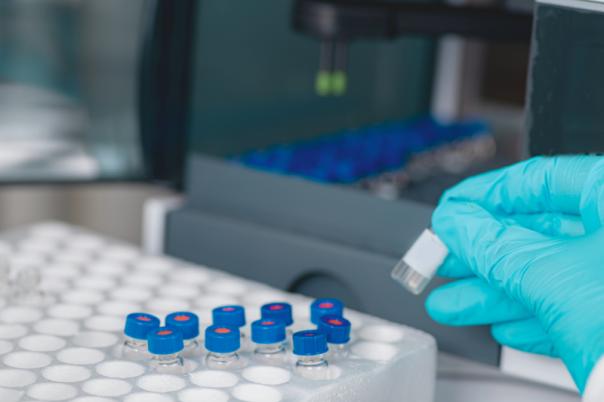Apoorva Sarode, a Principal Scientist in the Small Molecule Pharmaceutical Sciences Group at Genentech, presented a novel high throughput screening platform for lipid nanoparticles (LNPs). This platform is designed to enhance the formulation and evaluation of LNPs for nucleic acid delivery. The system uses a liquid handling robot and 96-well plates, enabling the simultaneous preparation of 96 LNP formulations. This method significantly increased throughput to 300-400 formulations per day, compared to the traditional microfluidic methods which were limited to 30-40 formulations daily.
Sarode's study focused on the role of PEGylation in LNP properties and cellular efficacy. The research varied PEG lipid content, type, carbon tail length, charge, and PEG arm size across 54 formulations to understand their impact on LNP physicochemical and biological behaviour. The LNPs were characterised for particle size, encapsulation efficiency, and internal structure using dynamic light scattering (DLS), Oligreen assay, and small angle X-ray scattering (SAXS). SAXS analysis revealed that a higher ratio of ordered hexagonal phase to amorphous phase within LNPs correlated strongly with improved gene knockdown.
The in vitro efficacy of LNPs was evaluated using mouse cortical neurons. The study found that shorter hydrophobic carbon tail PEG lipids enhanced gene knockdown efficacy, while PEG size and content had little effect on efficacy. This suggested that the hydrophobic component of the PEG lipid played a more significant role in cellular uptake and efficacy than the hydrophilic PEG arm.
The high throughput screening method's predictive value was validated by translating positive and negative hit formulations to microglial cells and scaled-up formulations using microfluidic mixing. This established the method as a reliable predictive assay across formulation methods and scales.
Sarode concluded that the developed end-to-end, modality-agnostic workflow reduced material use, accelerated early-stage LNP research, and aided in designing LNPs with tailored PEGylation for targeted nucleic acid delivery. This approach had the potential to benefit treatments for CNS disorders. The presentation highlighted the innovative approach and significant findings, providing valuable insights into the formulation and evaluation of LNPs for nucleic acid delivery.





